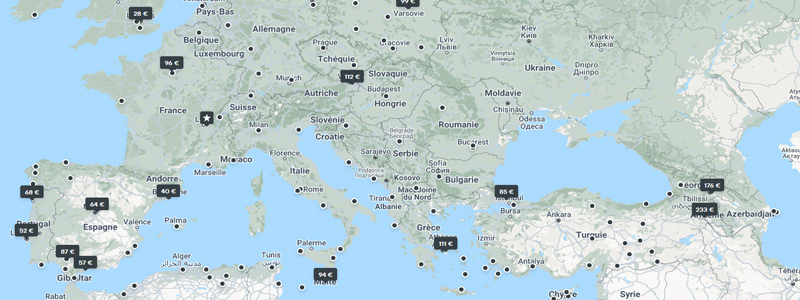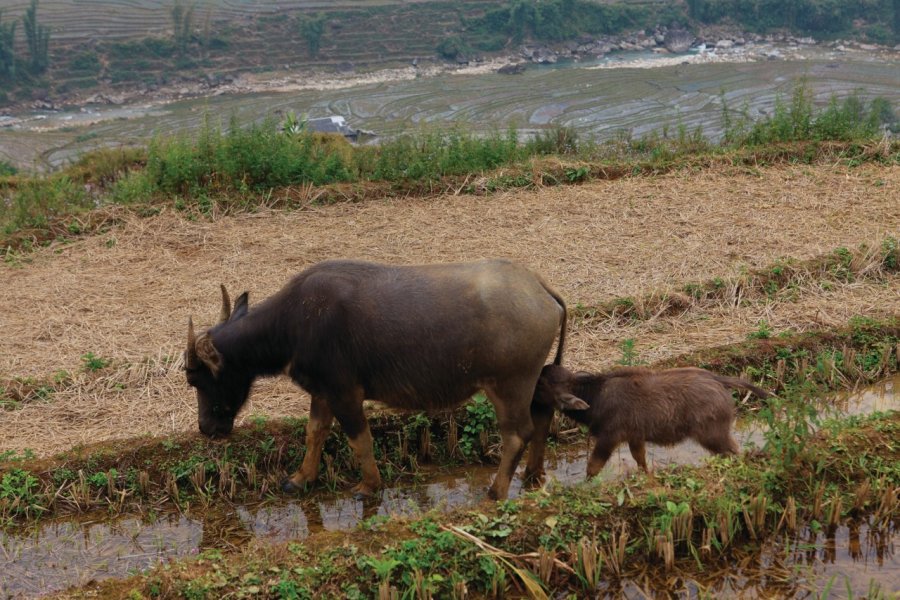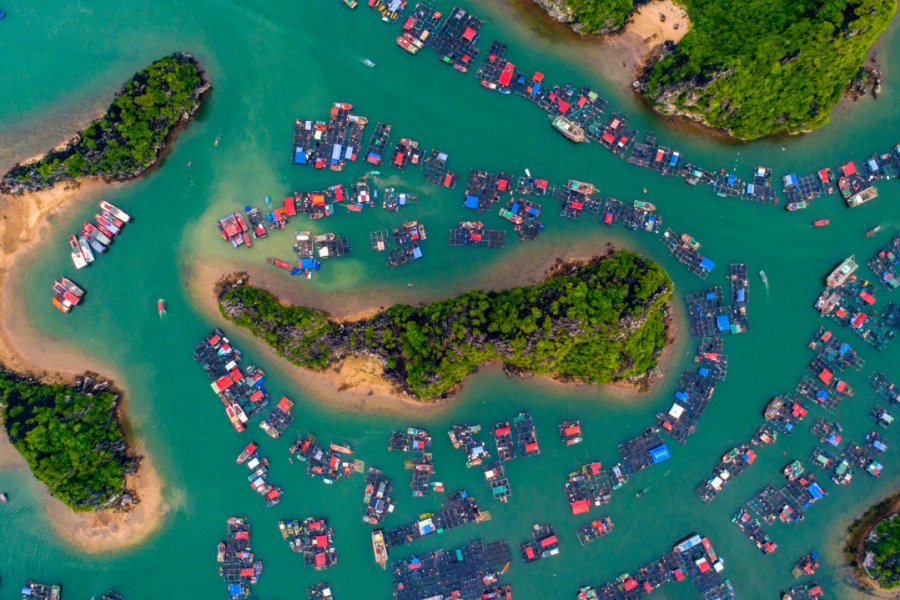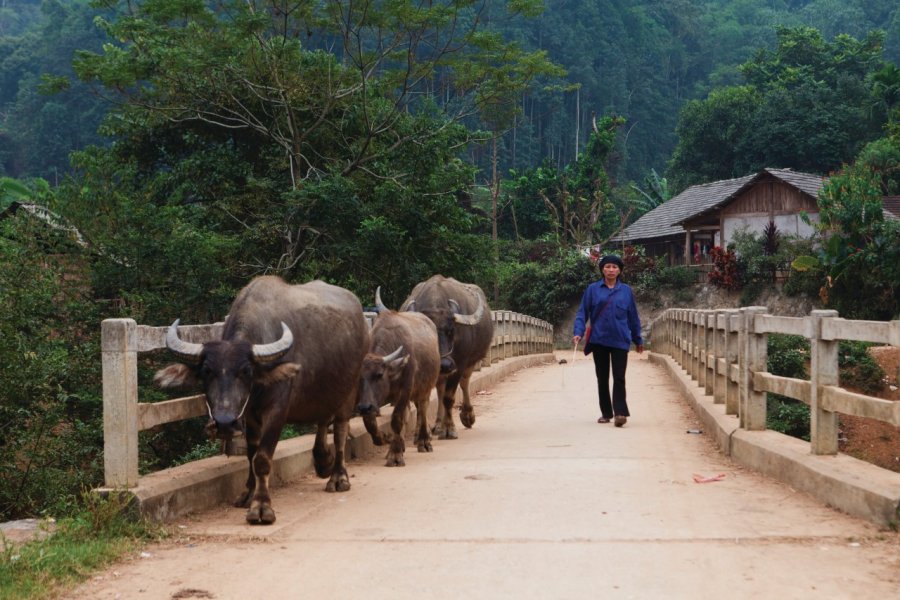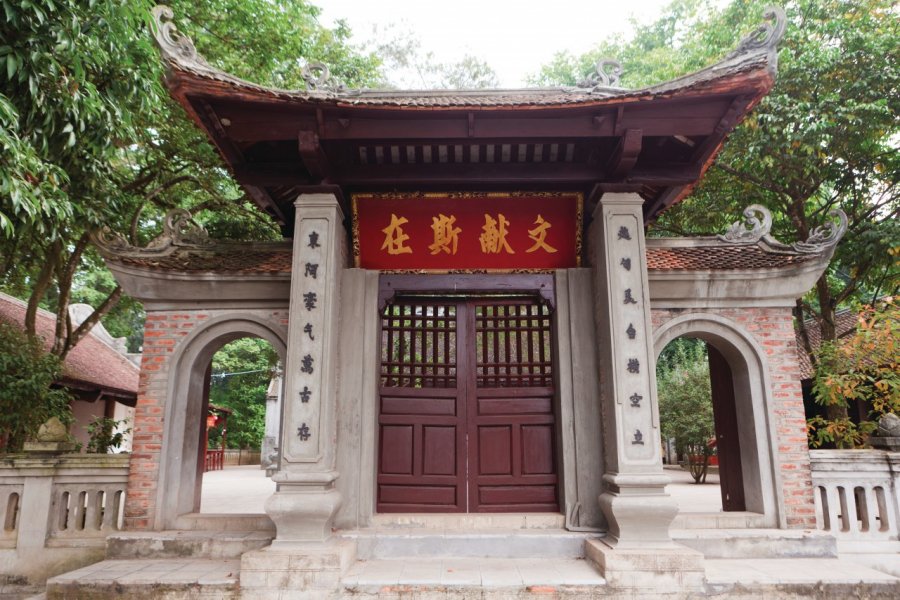Travel guide North
What to see, what to do North?
-
Book an activity
-
Customized travel
- The most beautiful cities North
Travel North
-
Find a hotel
-
Car Rental
-
International e-SIM package
-
Find a local agency
Le Viêt Nam est assez étendu, étant donné l’état des routes et les spécificités de la circulation, les trajets sont longs et fatigants. Une escapade d’une semaine permet de découvrir l’une des Hanoi et ses environs. Si vous disposez de trois semaines, vous pourrez explorer en profondeur les montagnes du nord du pays. Mais, du fait de la richesse culturelle et de la variété des paysages, les options restent multiples : découvrir les multiples facettes de Hanoi, voguer sur la baie d'Halong, admirer les paysages somptueux de la région de Ninh Binh, faire la boucle de Hà Giang en deux-roues, contempler les nombreuses pagodes des environs de la capitale. Plutôt que de parcourir tous les sites du nord du Viêt Nam, vous pourriez préférer privilégier un périmètre restreint. Cette option s’impose particulièrement à ceux qui voudraient découvrir les montagnes du Nord et la vie des minorités ethniques.
Find unique holiday offers with our partners
Featured articles North
Discover North
Vietnam... It's a very old country, which from 1946 to 1975 experienced the longest war of the 20th century. These tragic events often overshadow the long history and rich cultural and spiritual heritage that have shaped the Land of the Dragon. In this chapter, we'll take a look at some historical milestones, as well as at the country's geography. The landscapes of North Vietnam are renowned for being sumptuous, from the winding roads of the high mountains of the Dông Van plateau, to the karst peaks rising above the sea in Halong Bay, to the verdant terraced rice fields of Pu Luông, but as elsewhere, natural riches are threatened by rapid economic growth and climate change. Demographic and social issues will also be addressed... In short, everything the traveler needs to know before setting off to discover Vietnam.
Pictures and images North
The 12 keywords North
1. #Conical bonnet

A traditional peasant headdress, the non la is made from latanier leaves. Its lightweight frame is made up of bamboo hoops, to which the three layers of latanier are sewn with nylon thread for added strength. The conical hat is a symbol of Vietnam around the world.
2. #Diên Biên Phu
If Waterloo is remembered as a bleak plain, Diên Biên Phu is referred to as "the basin". 300 km west of Hanoi, Diên Biên Phu is the name of a valley at the crossroads of the roads to Laos. On May 7, 1954, after 55 days of fighting, the French expeditionary corps suffered a terrible defeat at the hands of General Giap's troops.
3. #Dragon

In Sino-Vietnamese, long, in everyday language, rông. Monstrous in appearance, the dragon is nevertheless an emblem of power and nobility. It is the Emperor's emblem, and the five-clawed dragon appeared on the costumes of the sovereigns. While in Thang Long (Hanoi), the dragon takes flight, in Ha Long, it descends (into the sea).
4. #Lotus flower
What could be more beautiful than the lotus flower? A symbol of purity, its white or pink flowers rise above the muddy water. The flowers exude a delicious fragrance. The successive metamorphoses of the leaf and flower at different stages of growth make the lotus an inexhaustible source of philosophical and artistic inspiration.
5. #Fleuve rouge
The Red River (Sông Hông) owes its color to the iron-oxide-laden alluvium it carries on its journey from China's Yunnan region. Both creator and destroyer, it fertilizes the delta with its alluvial deposits and enables the cultivation of rice, which is flooded but overflows in devastating floods every year during the monsoon season.
6. #Lacquer

Archaeological excavations in the Red River delta have revealed lacquered wood and leather objects found in tombs dating back to the 4th century BC. Lacquer is produced from the sap of the lacquer tree grown in Phu Tho province. Vietnamese lacquerware is an age-old tradition that has never ceased to renew itself.
7. #Oriental Sea
The "East Sea"(Biển Đông), is the hot spot of the moment and... don't say China Sea! Vietnam is seeking to develop its maritime space: transport and communications, fishing and aquaculture, oil and gas exploitation... But it is up against the ambitions of its powerful northern neighbor and its rapidly expanding fleet.
8. #Nuoc mâm
An essential condiment on every Vietnamese table. It's a brine made from fish that marinate for six months to a year, covered in salt, in large wooden vats. The best, made from anchovies(ca com), is said to come from the island of Phu Quôc. The Romans already produced a similar mixture, called "garum".
9. #Palanche
Vietnamese women carry their wares on a palanche, a long bamboo pole slung over the shoulder, with a tray suspended from each end. The palanche and its two trays is an image often evoked to describe the shape of the country, and is associated with the image of an eternal Vietnam.
10. #Water pipe
It consists of a 30-40 cm bamboo tube containing a base of water. At one-third of the way up, a small furnace holds a pinch of tobacco. The smoker inhales the smoke, cooled by its passage over the layer of water, with a long, single inhalation accompanied by a characteristic gurgling sound. It's a familiar scene in the north of the country.
11. #Rain
Rain is to Hanoi what fog is to London. From the 7th lunar month onwards, precipitation can fall without interruption. The rain doesn't decrease until September, and then comes the "cloud-shadow rain", light and fleeting in autumn. The drizzle carried by the northeast monsoon in winter is characteristic of the north.
12. #Rice

In Vietnamese, to eat is called an com, meaning "to eat rice". There are over 2,000 varieties and sub-varieties of rice, including three sub-species: hard rice, glutinous rice and floating rice. Behind India and Thailand, Vietnam is the world's3rd largest rice exporter (and5th largest rice producer).
You are from here, if...
You maintain an imperturbable phlegm as you cross the street, despite the intense, chaotic, Dantesque traffic and the motorcycles and cars whizzing past.
You prefer egg coffee (ca phê trung) to café au lait. The drink was invented by a chef at the Métropole Hotel, who, during the 1940s, a period of shortage, was looking for a substitute for milk to make cappuccino. Enjoy it hot or iced.
You've mastered the art of haggling. You need to know the price range and try to reach its lowest limit. If your price range is wrong, you'll either lose out by overpaying, or offend the other person by offering too low a price. He'll leave the game immediately. If you use patience and humor, you'll win.
Setbacks, disappointments, misunderstandings and the little conflicts of everyday life won't get the better of you.
You're walking a dog on the passenger seat of your motorcycle.
Other destinations North
- Plateau De Dông Van
- Halong Bay
- Bac Hà
- Île De Cat Bà
- Sa Pa
- Diên Biên Phu
- Kim Bôi
- Île De Quan Lan
- Lacs De Ba Bê
- Haiphong
- Môc Châu
- Parc National De Ba Bê
- Lac Thac Ba
- Île Co To
- Grotte Hang Hanh
- Muong Khuong
- Île De Ban Sen
- Île Dam Nam
- Île De Bo Hon
- Nam Dam
- Halong City
- Archipel De Van Don
- Trieu Tuong
- Nghia Lô
- Île De Tuan Châu
- Ta Phin
- Lai Châu
- Y Ty
- Mong Cai
- Île Ngoc Vung



